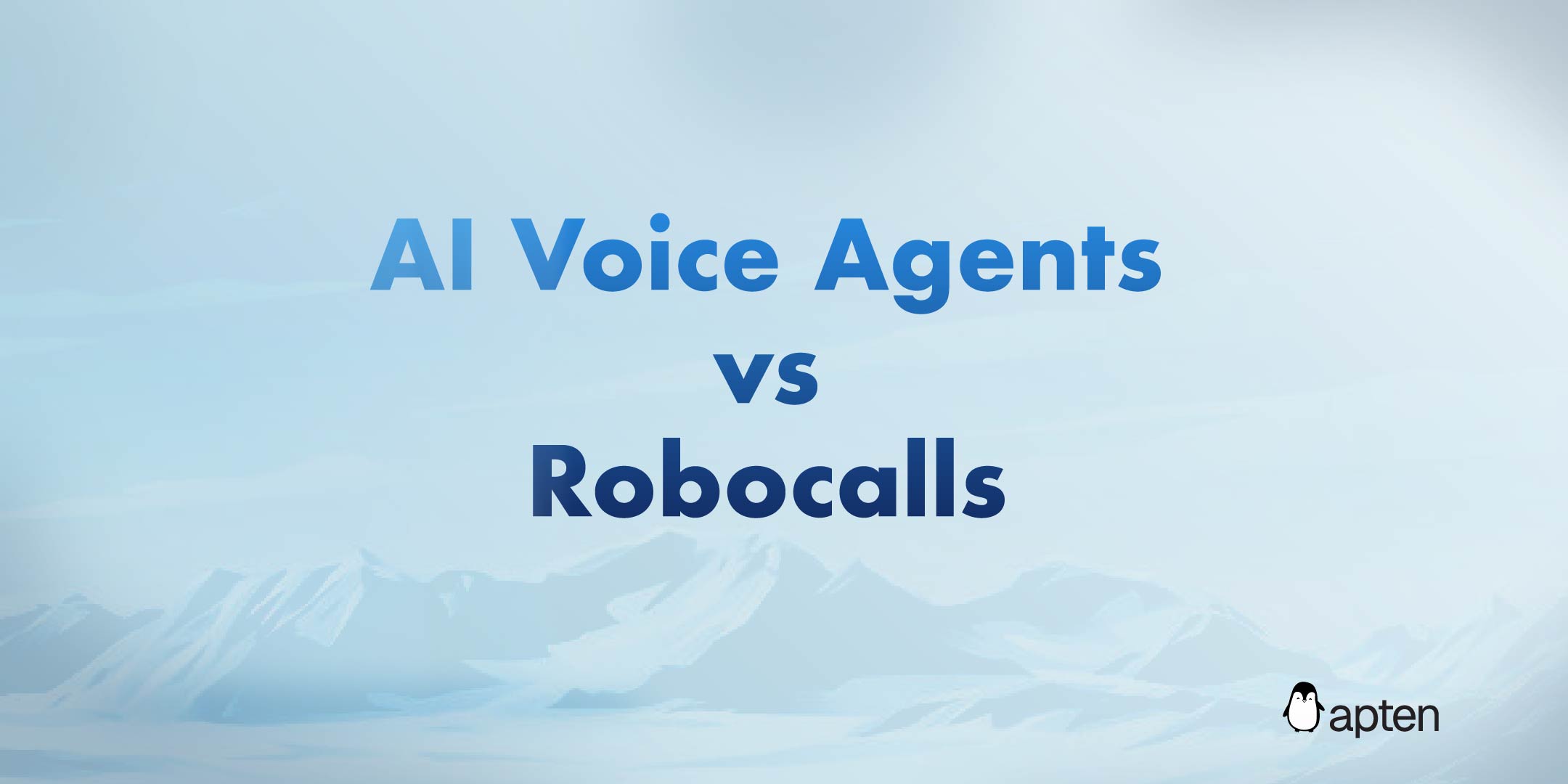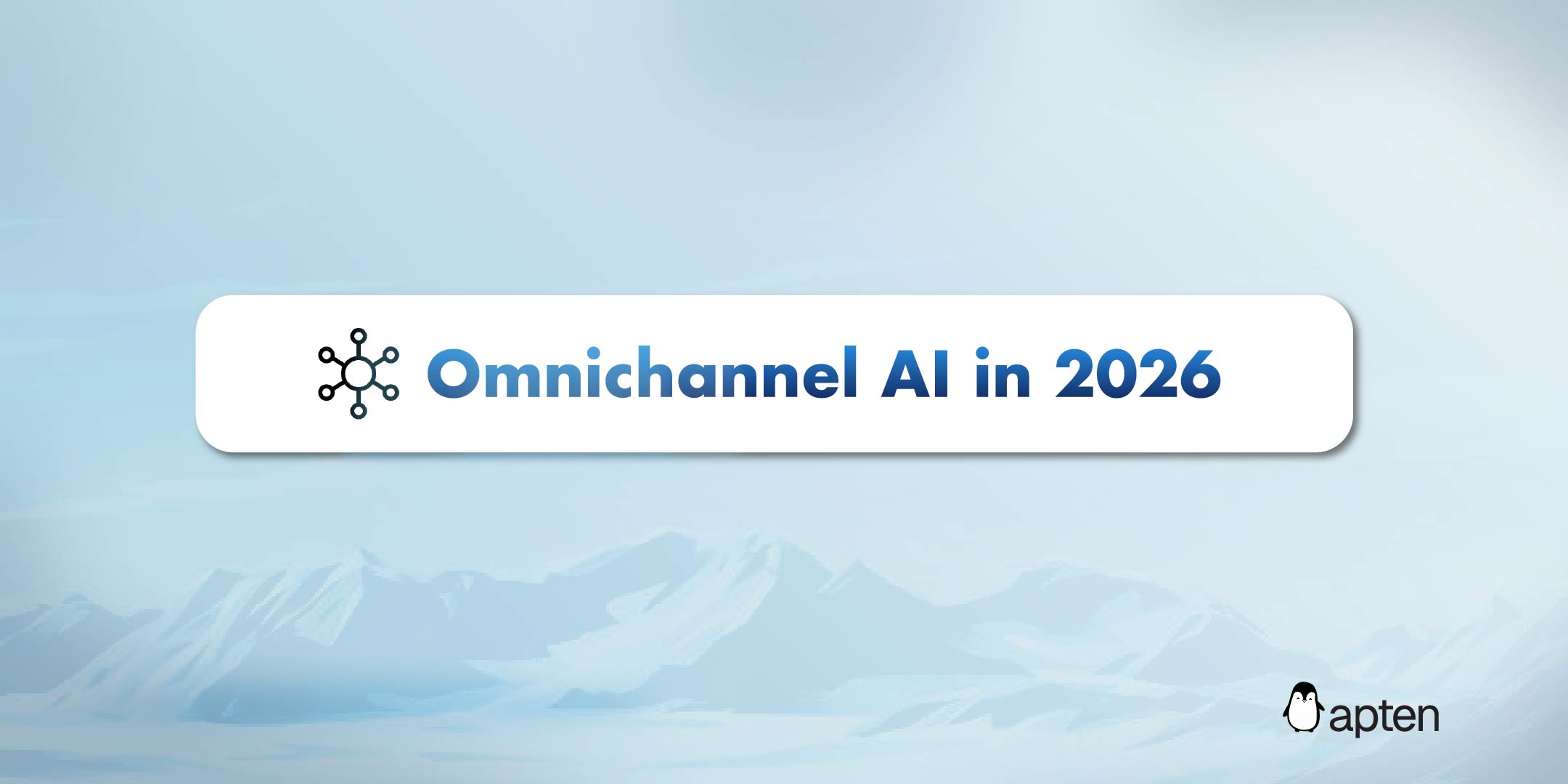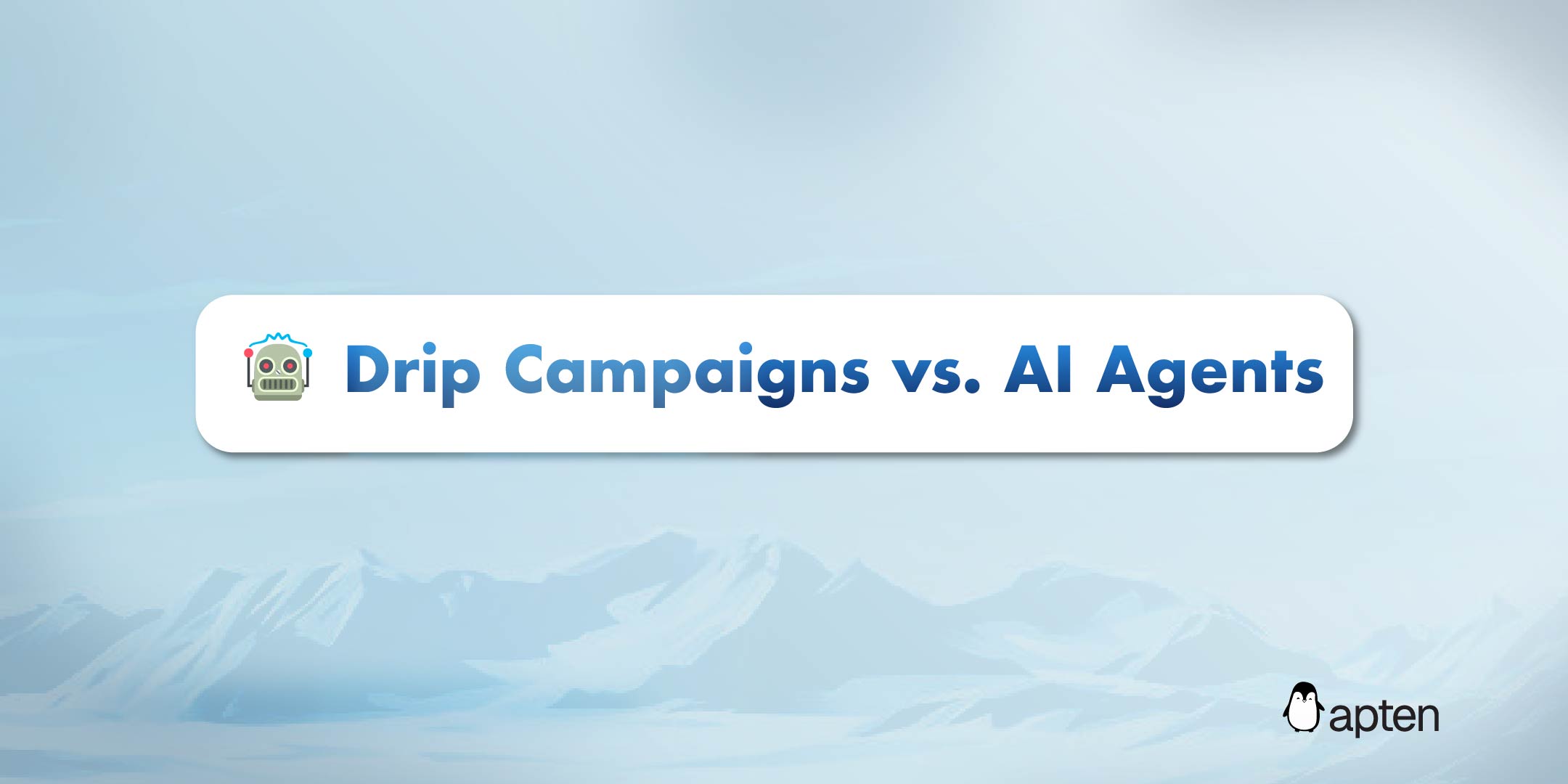If you’re like most consumers, the word “robocall” triggers instant irritation. Your phone buzzes with an unfamiliar number, and your first instinct is to ignore it. If you do pick up, a monotone recording begins pitching something you didn’t ask for--and before the message even ends, you hang up.
This experience is universal. According to the FTC, Americans received over 50 billion robocalls in 2023 alone, and spam-blocking apps like Hiya and Truecaller now flag millions of numbers daily. Consumers have been trained to treat unknown calls as threats, and businesses that rely on traditional outbound calls are suffering.
Robocalls are effectively dead as a marketing channel.
But a new era of calling has emerged: AI voice agents.
Unlike one-way robocalls, AI voice agents can talk, listen, and respond naturally, creating the kind of two-way conversation that earns attention--and drives revenue. For enterprises handling high-volume B2C leads in industries like insurance, home services, automotive, and financial services, AI voice agents aren’t just a novelty--they’re a competitive advantage.
In this article, we’ll explore:
Why robocalls fail in the modern world
What makes AI voice agents different and far more effective
The compliance, data, and conversion benefits of switching to AI
How enterprises are scaling revenue with AI-powered outbound voice
1. Robocalls Fail Because They’re One-Way and Outdated
Robocalls were once considered a cost-effective way to reach thousands of leads with minimal effort. But their simplicity is exactly why they fail today:
They’re one-way: Robocalls broadcast pre-recorded messages without listening or responding.
They’re generic: No personalization, no context--just a script read verbatim.
They’re easily ignored: Consumers instinctively hang up or block unknown numbers.
Modern customers expect interaction, not interruption. If a call can’t answer questions or adjust to their responses, it’s dismissed as spam.
Quick stat: A study by Zipwhip found that 87% of consumers ignore calls from unknown numbers, and over 60% associate robocalls with scams.
Meanwhile, carrier-level spam filtering and STIR/SHAKEN protocols have made it harder for robocalls to even reach phones. For companies spending thousands on outbound leads, that’s wasted budget.
2. AI Voice Agents Are Conversational, Engaging, and Human-Like
AI voice agents solve the core problem: they talk like people, not machines.
Key differences from robocalls:
Natural, two-way conversations: AI listens, interprets intent, and responds intelligently.
Context-aware personalization: Calls reference the lead’s name, inquiry, or last interaction.
Dynamic flow: AI can handle interruptions, objections, and schedule follow-ups automatically.
Example:
Robocall:
“This is an exclusive offer. Press 1 to connect with a representative.”AI Voice Agent:
“Hi Sarah, this is Apten following up on your request for an insurance quote. Are you still looking to start coverage this month?”
The first feels like spam. The second feels like service.
This human-like quality leads to:
Longer call durations
Lower hang-up rates
Higher conversions
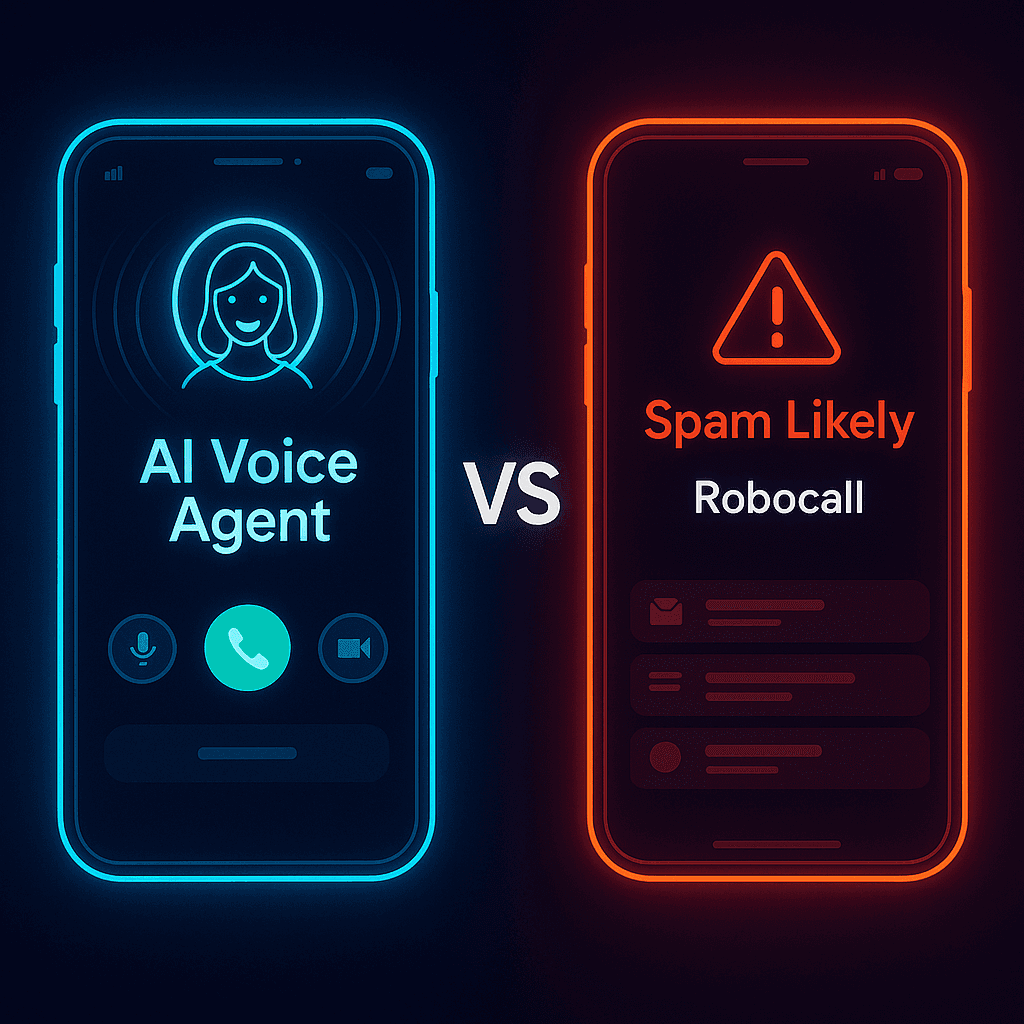
3. Modern Consumers Instantly Detect--and Ignore--Robocalls
Years of spam exposure have made consumers call-savvy. They know a robocall in the first 3 seconds.
Here’s why robocalls are doomed in 2025:
Caller ID apps auto-flag them as “Spam Likely.”
Consumers use local-only filtering, answering just familiar area codes.
Even answered calls are short: Average robocall duration is under 5 seconds before hang-up.
AI voice agents solve this by:
Using local presence dialing, boosting pickup rates by up to 20%.
Speaking naturally from the first word, avoiding that giveaway pause or click.
Engaging leads in two-way dialogue, which makes them far less likely to hang up.
Industry insight: Apten customers report 5–6x higher engagement rates after switching from robocalls to AI voice agents.
4. Compliance is Built-In, Not an Afterthought
Outbound calling is heavily regulated. Companies that misstep face:
Carrier blacklisting that kills future deliverability
Brand damage if flagged as spam
Unlike robocalls, Apten’s AI voice agents are designed for compliance:
Automatic Opt-Out Handling: Every “stop” or “unsubscribe” is instantly logged and respected.
Local Business Hour Calling: Calls are automatically restricted to state and regional windows.
Prior Consent Required: AI only engages leads who’ve opted in, protecting against TCPA violations.
Auditable Transcripts: Every call is recorded and transcribed, creating a full compliance trail.
This lets enterprises scale outbound calling without regulatory risk--something robocalls could never offer.
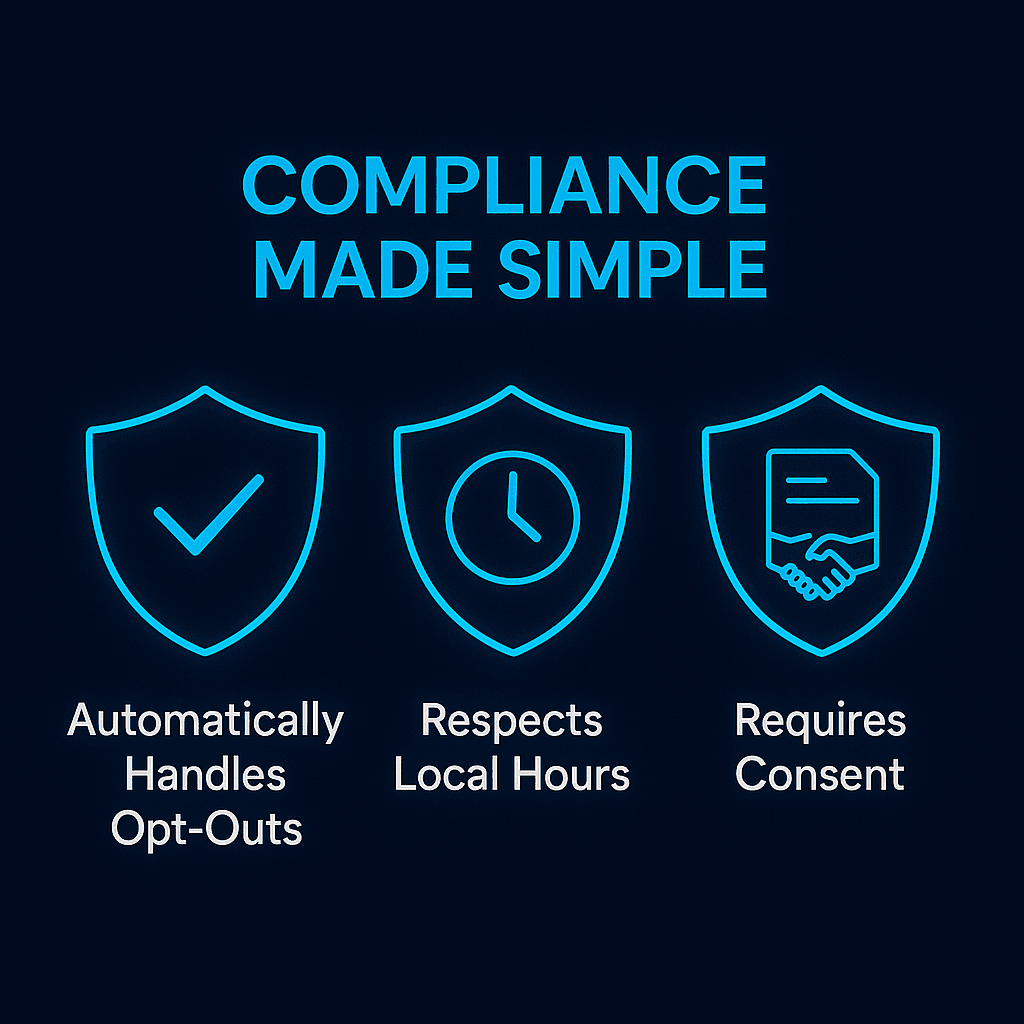
5. Timing and Personalization Make AI Voice Agents Superior
Robocalls are random, untimely, and generic. AI voice agents are precise, timely, and relevant.
Trigger-based calling: AI can engage leads within 60 seconds of form submission, dramatically improving speed-to-lead.
CRM data integration: Calls reference name, product interest, and past interactions.
Smart scheduling: AI can retry calls automatically based on optimal engagement windows.
Mini Case Study:
A national home services company replaced robocalls with Apten AI voice agents:
Robocall pickup rate: 3%
AI voice agent pickup rate: 18%
30-day conversion lift: +62%
Added benefit: Full TCPA compliance with zero carrier flags
6. Behind the Scenes: How AI Voice Agents Work
Many enterprise leaders ask, “What actually powers these AI calls?”
Here’s the simplified flow:
Lead Event Triggered – A web form, ad response, or CRM workflow kicks off the call.
Local Presence Dialing – AI selects the optimal outbound number for pickup.
AI Conversation Engine – Powered by LLMs, it engages in natural conversation with the lead.
Decision Logic – AI qualifies the lead, transfers if ready, or schedules a follow-up.
Data Sync – Call recording, transcript, and disposition sync back to CRM for analytics.
This creates a self-optimizing feedback loop: the more conversations Apten’s AI handles, the smarter and more effective it becomes.
7. Why Enterprises Are Ditching Robocalls for AI Voice Agents
For high-volume B2C sales teams, the difference isn’t subtle--it’s transformative:
Brand Reputation: Robocalls feel spammy. AI calls feel professional.
Conversion Rates: Conversational calls convert 3–6x higher than robocalls.
Cost Efficiency: Every answered AI call replaces dozens of ignored robocalls.
Scalability: AI voice agents handle 24/7 coverage without adding headcount.
Data-Driven Optimization: Every interaction produces transcripts, analytics, and insights.
Robocalls are a relic of outbound sales. AI voice agents are the scalable, compliant, revenue-generating future.
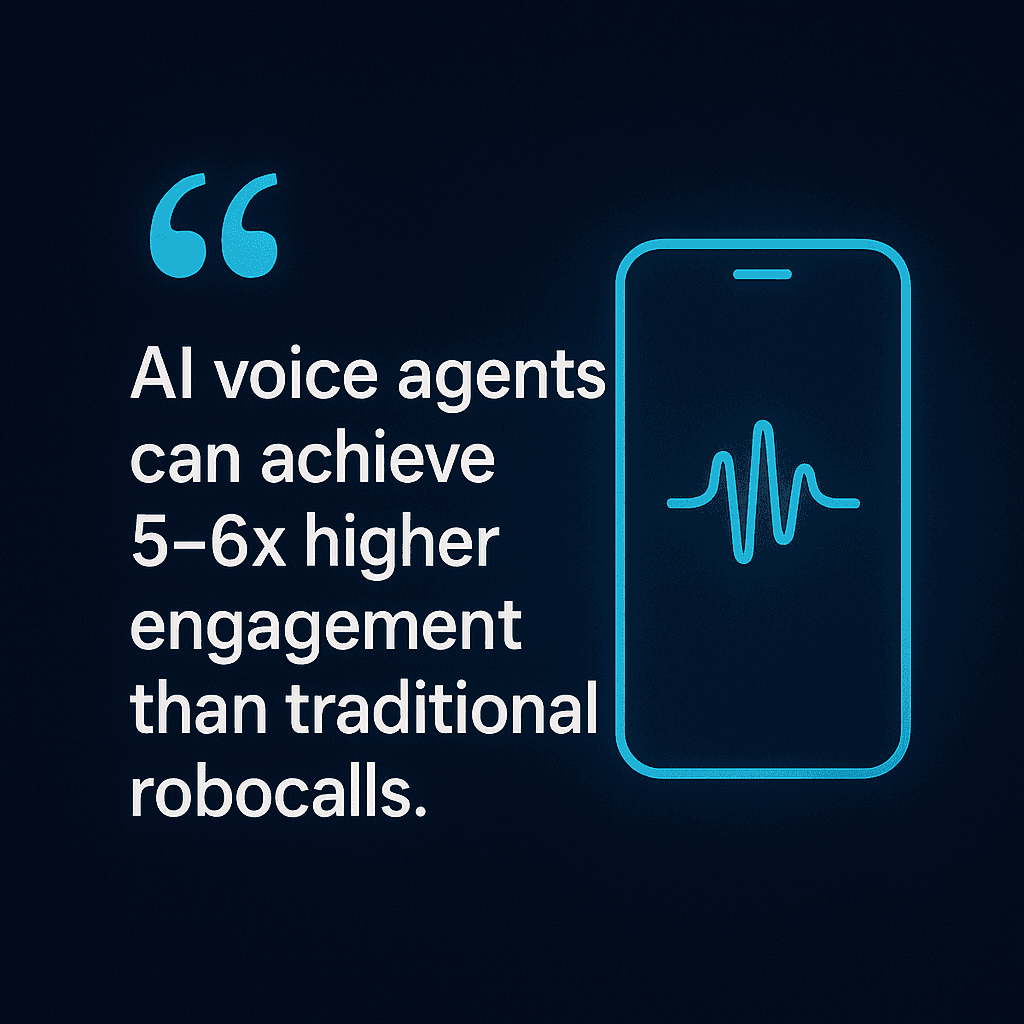
Final Word: Goodbye Robocalls, Hello AI Conversations
Robocalls are officially obsolete--ignored, blocked, and despised. AI voice agents have emerged as the next generation of outbound calling, delivering human-like, compliant, and scalable conversations that actually convert.
For enterprises, the choice is simple:
Robocalls = noise
AI voice agents = conversations that drive revenue
If your sales or marketing team is ready to transform lead engagement, Apten’s AI Voice Agents can help you turn every call into a conversion opportunity--without the risk, waste, or frustration of old-school robocalls.
